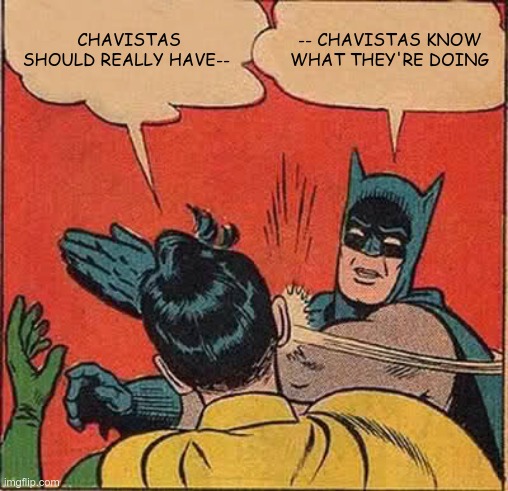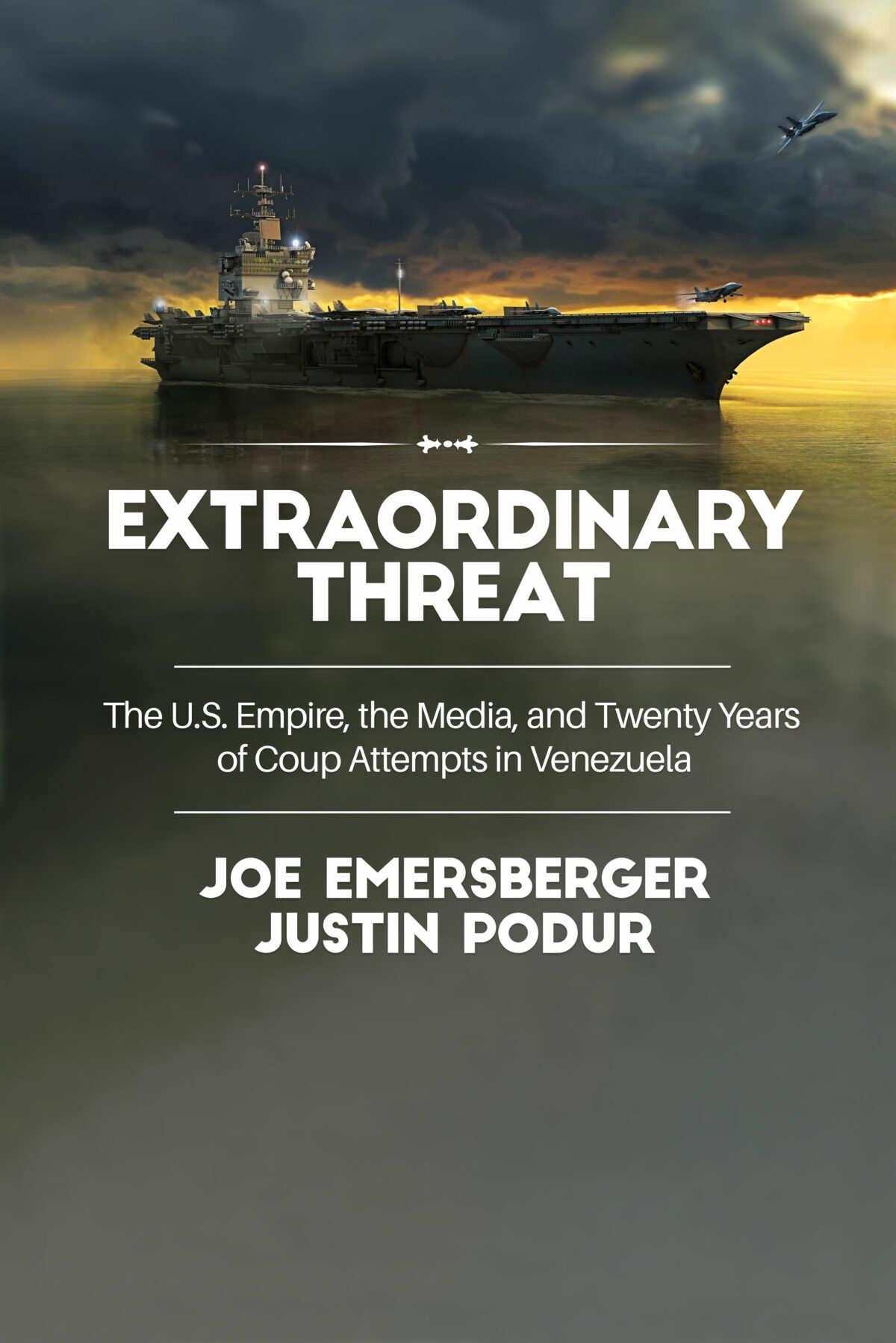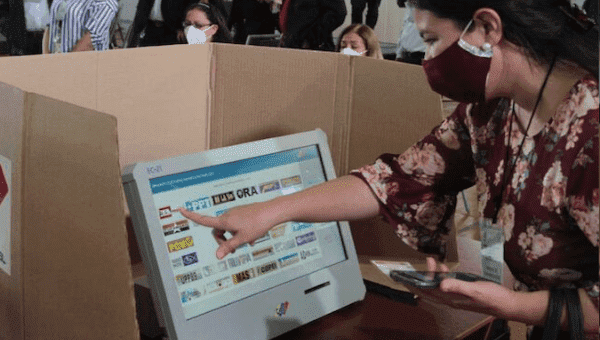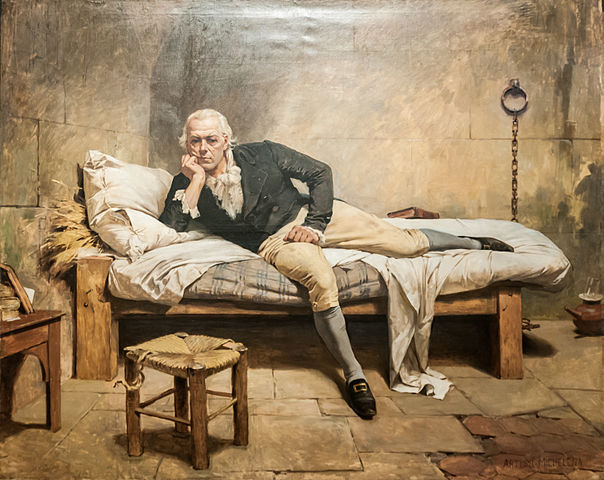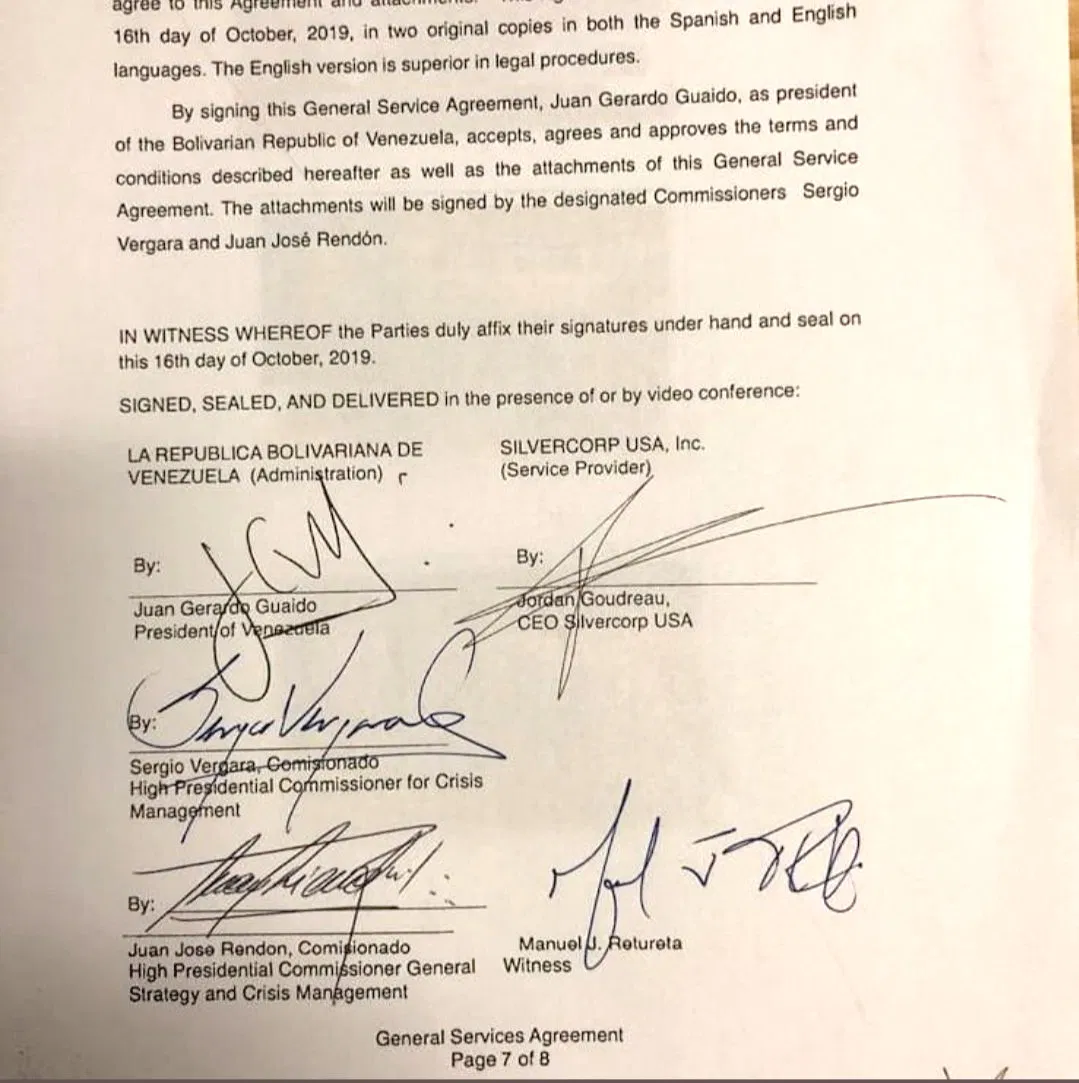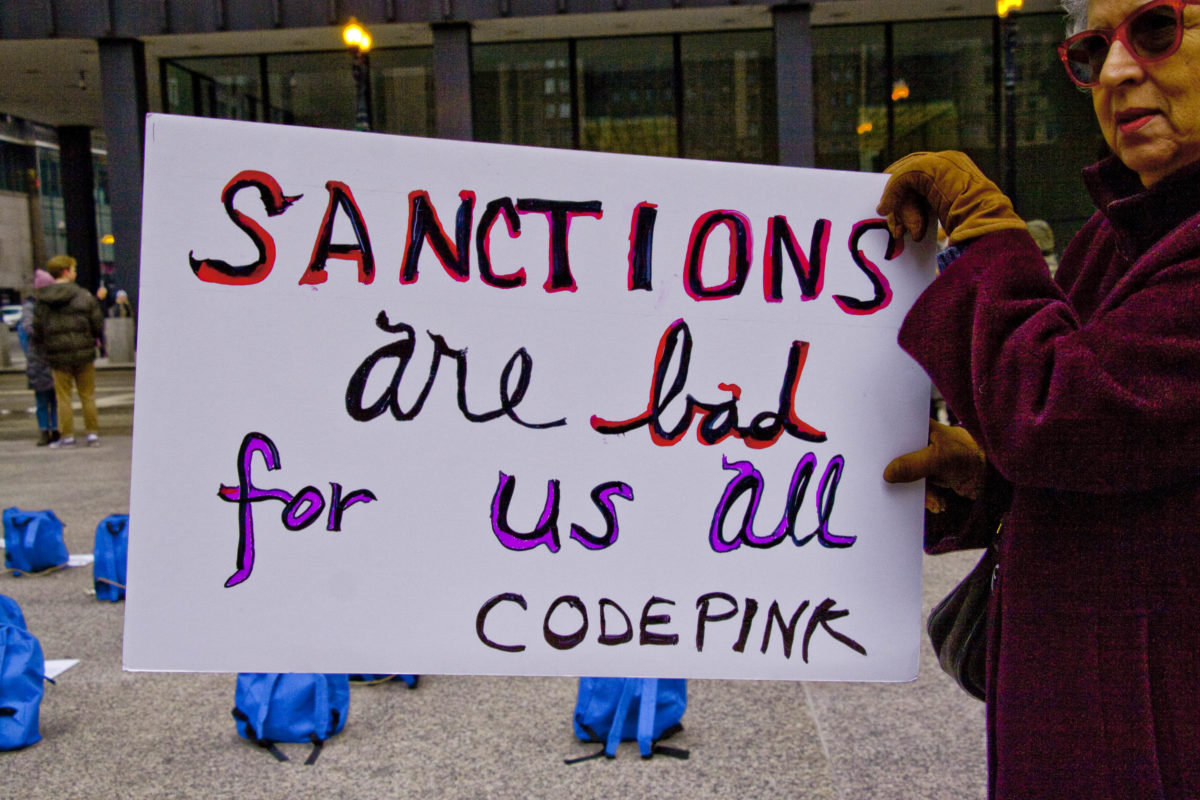With Joe Emersberger. The co-authors of the Monthly Review Press book Extraordinary Threat: The US Empire, the Media, and Twenty Years of Coup Attempts in Venezuela, discuss the seventh coup attempt on Chavismo which is in the process of being defeated.
Category: Venezuela Coups
AEP 92: Q/A on Extraordinary Threat, our new book on Venezuela
Joe and I answer some questions listeners sent in about our new book about Venezuela, Extraordinary Threat, from Monthly Review. Questions include: Was Venezuela “once-prosperous” before Chavez? Has Maduro been true to Chavez’s vision? What’s the COVID vaccination situation? Can we comment on Hong Kong? What is the internal social base of US imperialism in Venezuela? Can all the problems of Venezuela be placed at the feet of US imperialism? And more.
Episode 46 of In the Context of Empire
I was a guest on the fantastic podcast, In the Context of Empire, where I spoke with co-host Matt McKenna about lots of things, but mainly about how imperialist propaganda works.
AEP 75: The Dec 6 Venezuelan Legislative Elections
Maria Victor and I talk about the December 6 legislative elections in Venezuela. Turnout was low at 31%, but that’s normal for legislative elections* in a pandemic (Romania had around the same turnout on the same day, as others have pointed out). We talk about the electoral system in Venezuela, why it’s more fair than you’ve been led to believe, the disgraceful role Canada continues to play in trying to foment a coup in Venezuela, and what the new legislature is likely to do.
*Correction: Maria refers to the previous legislative elections in Venezuela as having a turnout of 25% – the 2015 legislative elections actually had a turnout of 75%. The 2005 legislative elections, however, had a turnout of 25%.
Civilizations Series Episode 12a: South American Independence pt1 – Miranda and Bolivar
The struggles for Independence against the Spanish Empire rocked the Western Hemisphere at the beginning of the 19th century and changed the world. We focus on Simon Bolivar to tell this story in two parts. In this part, the Precursor, Francisco de Miranda, and the first half of Simon Bolivar’s campaigns.
The Anti-Empire Project Episode 50: Iranian Tanker Arrives in Venezuela – quick reaction
A quick 12 minute reaction as the first Iranian tanker (Fortune) arrives in Venezuela with gasoline to alleviate shortages there. Some notes on the cruelty of the US sanctions regime, on why an oil producing country like Venezuela needs gasoline (for now), and what is likely to happen next.
Anti-Empire Project Episode 48: The Goudreau-Silvercorp Coup in Venezuela, Foiled
I talk to Maria Victor after the foiling of the May 3, 2020 terrorist plot against Venezuela, which involved the infiltration of American mercenaries by boat from Colombia. One of the mercenaries, Jean Goudreau of Silvercorp, gave an interview just before the attack where he revealed a signed contract with self-declared president Juan Guaido. We talk about this as the latest in a continuous run of coup attempts against Venezuela for the past twenty years.
The Anti-Empire Project Episode 42: US Troops at the Venezuelan border
We recorded quickly to react to the attack on a naval patrol boat (the Naiguata) off the coast of Venezuela and the positioning of US troops at the Venezuela-Colombia border. With Maria Victor and Joe Emersberger.
Sanctions Are Genocidal, and They Are the US’s Favorite Weapon
Far from precision-guided munitions, sanctions are weapons of starvation, which target the most vulnerable civilians for slow and painful death by deprivation of food and medicine
After withdrawing from the nuclear deal with Iran last year and resuming sanctions last November, the White House in April announced that its goal was to “drive Iranian exports to zero.” To make this drive happen, the White House stopped allowing (my emphasis) countries like India, China, Japan, Turkey, and South Korea to import Iranian oil: dictating to sovereign countries whom they can trade with.
The dictating doesn’t stop there. Last December the United States had Canadian authorities detain and imprison a Chinese executive, the chief financial officer of telecom company Huawei. Meng Wanzhou is currently on trial in Canada, on the allegation that her company violated U.S. sanctions against Iran. Not content with having told China that it cannot trade with Iran, the United States has gotten a third country, Canada, to take a Chinese corporate executive captive in what Trump suggested was leverage for a trade deal: “If I think it’s good for what will be certainly the largest trade deal ever made, which is a very important thing—what’s good for national security—I would certainly intervene, if I thought it was necessary,” he told Reuters in December.
The trade deal with China didn’t come through, and a “trade war” has begun. Meng Wanzhou is still stuck in Canada. And the blockade against Iran is still tightening. Economist Mark Weisbrot assessed some of the damage to the Iranian economy in a recent segment on the Real News Network, noting that when sanctions were imposed in 2012, oil production dropped by 832,000 barrels per day and GDP by 7.7 percent; when they were lifted in 2016 in the nuclear deal, production increased by 972,000 barrels per day and GDP increased by 12 percent that year. In 2018 when sanctions were imposed, oil production fell dramatically again and inflation rose by 51 percent; shortages of dozens of essential medicines, according to a study at the University of California, have followed.
Some basic economics are in order here. A country that does not need to import or export is called an autarky, and in today’s global economy there are no autarkies. All national economies depend on trade: they export, earn foreign currency, and use that to import what they cannot produce. Driving a country’s exports to zero means destroying the country’s economy, and depriving the country’s people of necessities.
Sometimes billed as an alternative to war, sanctions are in fact a weapon of war. Far from precision-guided munitions, sanctions are weapons of starvation, which target the most vulnerable civilians for slow and painful death by deprivation of food and medicine. They are an alternative to war in the sense that unlike the invasion of ground troops or even the dropping of bombs, they pose little risk to the aggressor. This is their appeal to someone like Trump, who revealed the genocidal intent behind the Iran sanctions when he threatened (on Twitter) “the official end of Iran.”
In the 1990s, one focus of the antiwar movement was the impact of the genocidal sanctions against Iraq, which killed 500,000 children (a “price” that Madeleine Albright famously said was “worth it”). Antiwar activists feared that the sanctions were part of a military strategy that would end in even more devastating shooting war. Those fears proved true. Today’s sanctions seem to draw from the same playbook.
International law recognizes that sanctions are a form of warfare, and places the use of the sanctions weapon in the hands of the United Nations Security Council. And so it happened that between the 1990 and 2003 U.S. wars on Iraq, the UN played the shameful role of administering the Iraq sanctions. But today’s unilateral sanctions imposed by the U.S. circumvent any UN legalities. In the same Real News segment, UN Special Rapporteur on Unilateral Coercive Measures Idriss Jazairy noted that about one-quarter of the world’s population is under some form of unilateral sanctions. Iran, Venezuela, Syria, Cuba, Sudan and others are under various U.S. sanctions regimes. Yemen is fully blockaded by the U.S., UK, and Saudi Arabia; Gaza and the West Bank are completely sealed in by Israel; Qatar is blockaded by Saudi Arabia and the UAE, and the list goes on.
U.S. sanctions against Venezuela have already killed 40,000 people between 2017 and 2018, according to a report by Mark Weisbrot and Columbia University’s Jeffrey Sachs. The more intense sanctions imposed in 2019 will kill still more. Venezuela’s electrical grid is damaged, most likely because of sabotage. Maintenance of potable water pumps has become impossible without imported spare parts, leaving millions without water. A Venezuelan professor of economics, Pasqualina Curcio, told a delegation of the End Venezuela Sanctions coalition that sanctions have cost the country $114 billion, “which is nearly equal to one year’s worth of Venezuelan GDP at a typical oil price, or 26 years’ worth of medical imports.”
One of the tactical arguments anti-sanctions campaigners sometimes make is that sanctions “don’t work.” And for their declared purpose of “regime change,” indeed they do not. But when a policy is so widespread, such a first resort, perhaps the declared purpose is not the real purpose. If the purpose is to destroy economies, isolate countries, coerce allies, keep tensions near boiling and maintain a constant threat of war, sanctions are successful. It has been shown time and again that torture “doesn’t work” for obtaining information. But torture is not a technique for obtaining information. It is a technique for breaking a person and, when practiced on a mass scale by an apartheid state or dictatorship, for breaking a society. Sanctions are similar: the point is to break the society, not “regime change.”
Sanctions are Trump’s favorite weapon, but good Democrats are no different. Obama oversaw the destruction of Syria, Clinton laughed about the murder of Gaddafi and the destruction of Libya, and Albright said that 500,000 Iraqi children’s deaths were “worth it.” For the empire, genocide, like aggression, is a normal part of politics. Nuclear planners plan how to commit it. Sanctions officials administer it. And for the most part, human rights organizations take no position on it.
It is possible that at some point sanctions could become self-limiting. If enough countries are sanctioned, they might of course decide to trade with one another. In attempting to isolate so many big countries, the United States could isolate itself, creating a kind of “coalition of the sanctioned.” But from the U.S. perspective, with Brazil, India, and Egypt (the biggest countries in Latin America, South Asia, and the Arab world) all utterly subservient, perhaps this looks like a good moment to try to pressure China, Russia, Iran, Venezuela and Cuba. Trump’s planners can rest assured that it is not them, but millions of innocents in those countries who will pay for their power plays.
This article was produced by Globetrotter, a project of the Independent Media Institute.
Inside the neoliberal laboratory preparing for the theft of Venezuela’s economy

As we watch a US-backed coup unfold in a distant country, as in Venezuela today, our eyes are drawn to the diplomatic, military, and economic elements of the US campaign. The picture of a scowling John Bolton with a big yellow notepad with the message “5,000 troops to Colombia” reveals the diplomatic and military elements. The New York Times headline “U.S. Sanctions Are Aimed at Venezuela’s Oil. Its Citizens May Suffer First” reveals the economic element.
But US foreign policy mobilizes every available resource for regime change and for counterinsurgency. Among those resources, you will always find academics. The pen may not always be mightier than the sword, but behind every US-backed war on a foreign people there will be a body of scholarly work.
The academic laboratory of the Venezuelan coup has the highest academic pedigree of all—it’s housed at Harvard. Under the auspices of the university’s Center for International Development, the Venezuela project of the Harvard Growth Lab (there are growth labs for other countries as well, including India and Sri Lanka) is full of academic heavyweights, including Lawrence Summers (who once famously argued that Africa was underpolluted). Among the leaders of the growth lab is Ricardo Hausmann, now an adviser to Juan Guaido who has “already drafted a plan to rebuild the nation, from economy to energy.”
In an interview with Bloomberg Surveillance, Hausmann was asked who would be there to rebuild Venezuela after the coup—the IMF, the World Bank? Hausmann replied (around minute 20), “we have been in touch with all of them. … I have been working for three years on a ‘morning after’ plan for Venezuela.” The hosts interrupted him before he could get into detail, but the interview concluded that bringing back the “wonderful Venezuela of old,” for investors, would necessitate international financial support. Never mind that the “wonderful Venezuela of old” was maintained through a corrupt compact between two ruling parties (called “Punto Fijo”) and the imprisonment and torture of political opponents—amply documented but forgotten by those who accuse Maduro of the same crimes.
The Growth Lab website provides some other ideas of what Hausmann’s plan likely includes: Chavez’s literacy, health care, and food subsidy “Missions,” a growth lab paper argues, have not reduced poverty (and, implicitly, should go). Another paper argues that the underperformance of the Venezuelan oil industry was due to the country’s lack of appeal to foreign investors (hence Venezuela should implicitly be made more appealing to this all-important group). A third paper argues that “weak property rights” and the “flawed functioning of markets” are harming the business environment—no doubt strengthening property rights and getting those markets functioning again will be in the plan. If this sounds like the same kind of neoliberal prescription that devastated Latin American countries for generations and was imposed and maintained through torture and dictatorship from Chile and Brazil to Venezuela itself, that is because the motivation is to bring back the “wonderful Venezuela of old.”
A Wall Street Journal article by Bob Davis from 2005 credits Hausmann with being part of the original Washington Consensus in 1989, “the economic manifesto [that] identified government as a roadblock to prosperity, and called for dismantling trade barriers, eliminating budget deficits, selling off state-owned industries and opening Latin nations to foreign investment.” But before returning to the neoliberal prescription, Hausmann experimented with different economic ideas, including some heresies. If the WSJ article is to be believed, Hausmann looked at the data on Latin American economic growth decades later and found “Deep reforms; lousy growth,” and concluded that there “must be something wrong with the theories of growth.”
Hausmann’s academic work is highly technical, macroeconomic modeling. The models reveal the consequences of the assumptions used to construct them: at times there is some data fit to them. Others are applied mathematics exercises. A paper on 2005 “Growth Accelerations” looks for periods when countries’ economies grew quickly. An earlier paper, from 2002, presents a roundabout argument on the so-called “resource curse,” in which oil-dependent economies (like Venezuela) suffer poor developmental performance, arguing at that time that “more interventionist policies to subsidize investment in the non-tradable sector may also have a role to play.”
But whether it was written by Hausmann or not, the economic plan of Guaido’s post-coup government has no such heterodox ideas in it, however. It is difficult to imagine Hausmann or Guaido going against Bolton, who told Fox News that “It will make a big difference to the United States economically if we could have American oil companies invest in and produce the oil capabilities in Venezuela.” The post-coup Venezuelan economy will not be all about mathematically rigorous experiments in economic growth like Hausmann’s academic work. It will be about the privatization of Venezuela’s assets.
Hausmann might have a long and ideologically winding record of publishing models of economic growth, but he has maintained a passion for regime change in Venezuela for more than a decade—even at the expense of academic integrity. After the Venezuelan opposition failed to oust Chavez in a coup in 2002 and failed again to oust him using a strike of the Venezuelan oil company in 2003, they resorted to constitutional means—a recall referendum, in 2004. Voters overwhelmingly rejected the recall in the referendum, which featured then new electoral machines that did an electronic tally verified by printed ballots (still the system used in Venezuela and praised by former US president Jimmy Carter in 2012 as the “best in the world”) and was overseen by numerous international observers including the Carter Center. But Hausmann prepared a highly dubious statistical analysis to cast doubt on the outcome. Hausmann’s dubious statistics were cited numerous times. More may have been made of them had they not been thoroughly discredited by the US-based Center for Economic and Policy Research (CEPR). Mark Weisbrot of CEPR summarized the episode in a 2008 report:
“… the political impact of economic and econometric research on Venezuela can be very significant. For example, in 2004, economists Ricardo Hausmann of Harvard’s Kennedy School (a former Minister of Planning of Venezuela) and Roberto Rigobon of MIT published a paper purporting to show econometric evidence of electronic fraud in the 2004 presidential recall referendum. The theory of the fraud was implausible in the extreme, the statistical analysis was seriously flawed, and the election was observed and certified by the Carter Center and the Organization of American States. Nonetheless this paper had a substantial impact. Together with faked exit polls by Mark Penn’s polling firm of Penn, Schoen, and Berland—which purported to show the recall succeeding by a 60-40 margin, the mirror image of the vote count—it became one of the main pieces of evidence that convinced the Venezuelan opposition that the elections were fraudulent. On this basis they went on to boycott the 2005 congressional elections, and consequently are without representation in the National Assembly.
“The influence of this Hausmann and Rigobon study would probably have been much greater, but CEPR refuted it and then the Carter Center followed with an independent panel of statisticians that also examined these allegations and found them to be without evidence. Nonetheless, the Wall Street Journal and other, mostly Latin American publications, used the study to claim that the elections were stolen. Conspiracy theories about Venezuelan elections continue to be widely held in Venezuela, and are still promoted by prominent people in major media sources such as Newsweek, even with regard to the recent constitutional referendum of December 2, 2007.”
Hausmann’s 2004 statistical gambit is actually an established part of the US-coup playbook. The academic analysis of an election and the finding of flaws, real or imagined, in an electoral process are the beginning of an ongoing claim against the target’s democratic legitimacy. The created flaw is then repeated and emphasized. Even if it was spurious and debunked, as was Hausmann’s 2004 analysis, it can continue to perform in media campaigns against the target. After years of such repetition, the target can safely be called a “dictator” in Western media, even if the “dictator” has more electoral legitimacy than most Western politicians.
The elected president of Haiti, Jean-Bertrand Aristide, was overthrown in a US-backed coup in 2004. Haiti’s Hausmann was an academic named James Morrell. After Aristide won reelection in 2001 in a landslide, he stood poised to make major legislative moves on behalf of the country’s poor majority. Morrell published an article about how Aristide had “snatched defeat from the jaws of victory,” because of irregularities in the election of eight senators (out of 19, 18 of which were won by candidates from Aristide’s party): only the votes of the top four candidates in the senatorial elections were counted for these senate seats. These senators would have won regardless of the methodology used, but these supposed irregularities were enough to initiate the financial punishment of Aristide’s government: the suspension of Inter-American Development Bank (IADB) financing, to the tune of $150 million. All eight senators were made to vacate their seats, but the IADB never provided the loan. Morrell’s article played a key role as the intellectual backing for the attack on the Aristide government’s legitimacy, despite Aristide’s overwhelming victory in the 2001 election and the contrived nature of the “irregularities” in the senate seats.
The coup against Aristide unfolded over a period of years: economic warfare, paramilitary violence, and the eventual kidnapping of Aristide from the palace were the tactics of choice in that regime change. But the academics preceded the coup, and followed it, providing justifications and obfuscations of what was happening in the post-coup, counterinsurgency violence.
Latin American social violence has even longer-running academic underpinnings. Today, Colombia’s president, Iván Duque (the protégé of the previous warlord-president Álvaro Uribe Vélez), leads the call for regime change in Venezuela. Duque’s country was reshaped by a multigenerational civil war during which the countryside was depopulated, through paramilitary violence, of millions of peasants (many of them Afro-Colombian or Indigenous). The academic theorist behind this was the Canadian-born, US “new dealer” Lauchlin Currie, whose theory (summarized by academic James Brittain in a 2005 article), called “accelerated development,” was that “the displacement of rural populations from the countryside and their relocation to the urban industrial centers would generate agricultural growth and technological improvements for Colombia’s economy.” Currie implemented these ideas as the director of the foreign mission of the World Bank from 1950, and as adviser to successive Colombian presidents. Today Colombia continues to suffer from Currie’s academic theories. Despite the peace deal of 2016, it has the largest internally displaced population in the hemisphere.
John Maynard Keynes wrote that “Practical men, who believe themselves to be quite exempt from any intellectual influence, are usually the slaves of some defunct economist. Madmen in authority, who hear voices in the air, are distilling their frenzy from some academic scribbler of a few years back.”
As Max Blumenthal and Ben Norton show in their article about him, Guaido is just such a practical man, a US-foundation-funded street fighter for the rich neighborhoods of Caracas. But he certainly has use of the academic scribblers gathered at Harvard.
When it comes to suppressing the people of Latin America in their hopes to control their own fortunes and their own resources, the scribblers have a key role to play, as much as their diplomatic and military counterparts.
Justin Podur is a Toronto-based writer. You can find him on his website at podur.org and on Twitter @justinpodur. He teaches at York University in the Faculty of Environmental Studies.
This article was produced by Globetrotter, a project of the Independent Media Institute.

